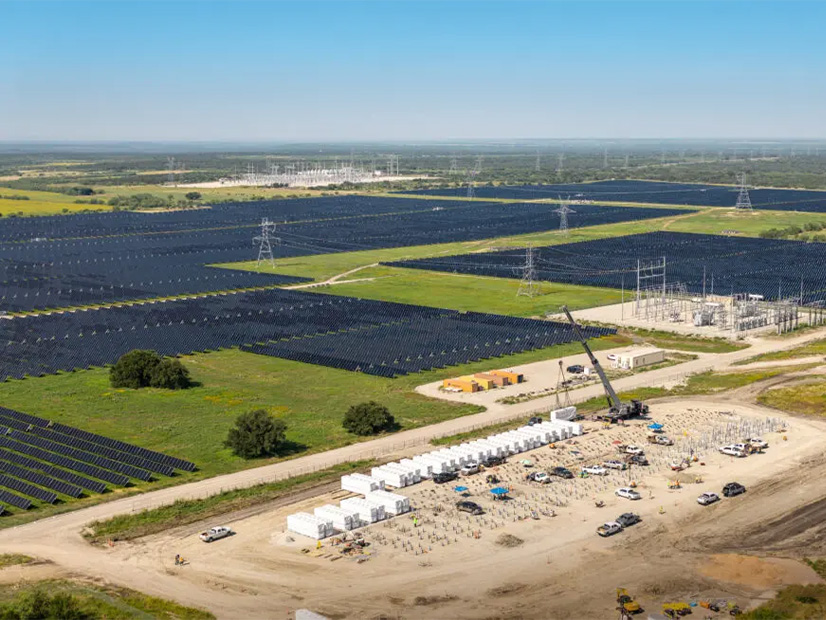Too many state pension funds are failing to take adequate steps to address climate-related financial risk, said a report released Feb. 10 by the Sierra Club and “Stand.earth.”
The Hidden Risk in State Pensions examined 32 of the largest public pension funds representing $3.8 trillion in assets under management and graded some of them well on climate issues but found that most were not adequately addressing climate change.
Pensions are a key source of capital for asset managers like BlackRock and Brookfield Asset Management, which have invested their money heavily in the power industry through stock purchases and direct infrastructure investments.
“As investors on the longest-term horizons, pensions must read the writing that’s been on the wall for decades: live up to their fiduciary duty, and protect pensioners and climate alike through updated proxy voting guidelines, and voting in line with climate and human rights,” Stand’s Associate Director of Climate Finance Amy Gray said in a statement. “It is disappointing to see so many funds not accessing such a powerful strategy to defend climate and the working-class communities they serve.”
The pension funds were evaluated based on their proxy voting guidelines, which signal investor priorities on corporate governance and direct how a shareholder votes, and proxy voting records in 2024. The votes came from various sectors including financial institutions, automakers, utilities, industry and the consumer sector.
Only one pension got an “A” grade on guidelines — the New York State Common Retirement Fund — while an additional seven from California, Connecticut, Massachusetts, New York and Vermont received “B” grades. Two thirds of the funds analyzed got a “D” or an “F.”
As for actual voting records, eight funds scored an “A,” and they were based in California, Massachusetts, New Jersey, New York, Ohio and Oregon. Pensions in Connecticut and Los Angeles County got “B” grades, while the State of Wisconsin Investment Board and the Washington State Investment Board got “C” grades.
Some of the funds have begun voting for climate-friendly policies, with two issuing new guidelines in 2024 to cover biodiversity, director accountability on climate and human rights.
“While this progress is noteworthy, all the pensions highlighted in this report could do more to shield their beneficiaries from growing climate- and environment-related financial risks,” the report said.
Many pensions might underestimate the financial risks posed by climate change as they rely on models the report criticized as significantly flawed. One study in 2024 estimated that equity valuations could plunge 40 to 50% if emissions are not addressed, which would affect public sector workers’ ability to retire with economic security.
“Pension funds are universal owners, meaning that they have highly diversified and long-term portfolios that are representative of global capital markets,” the report said. “The performance of diversified long-term portfolios is largely driven by the overall growth and stability of the global economy, more so than the fluctuations in the value of various companies and sectors.”
Pensions hold shares for the long term because they need to ensure payments for retirees for decades.
“Only by taking an approach that seeks to mitigate systemic risks and risks to their overall portfolios can long-term and diversified investors, such as pensions, best preserve the value of their investments,” the report said.
Exercising shareholder rights by voting at annual corporate meetings is a way pension funds can influence actions.
“Institutional investors, such as pensions, hold a large number of corporate shares, granting them disproportionate influence over corporate behavior,” the paper said. “This means that how pensions vote on who sits on a company’s boards of directors or on shareholder proposals asking companies to decarbonize will be influential in determining whether or not the world will rein in catastrophic climate and ecological crises.”
Eight pensions in the report operate in states with “anti-ESG” (environment, social and governance) investing principles: Arizona, Florida, Indiana, Missouri, North Carolina, Tennessee, Texas and Virginia. They scored lower than their peers and had fewer guidelines than their counterparts.
While the funds in anti-ESG states scored lower, the report noted that many funds without legal barriers have “minimally better guidelines,” and the non-participation of those two groups limits the effectiveness of shareholder engagement on climate.




